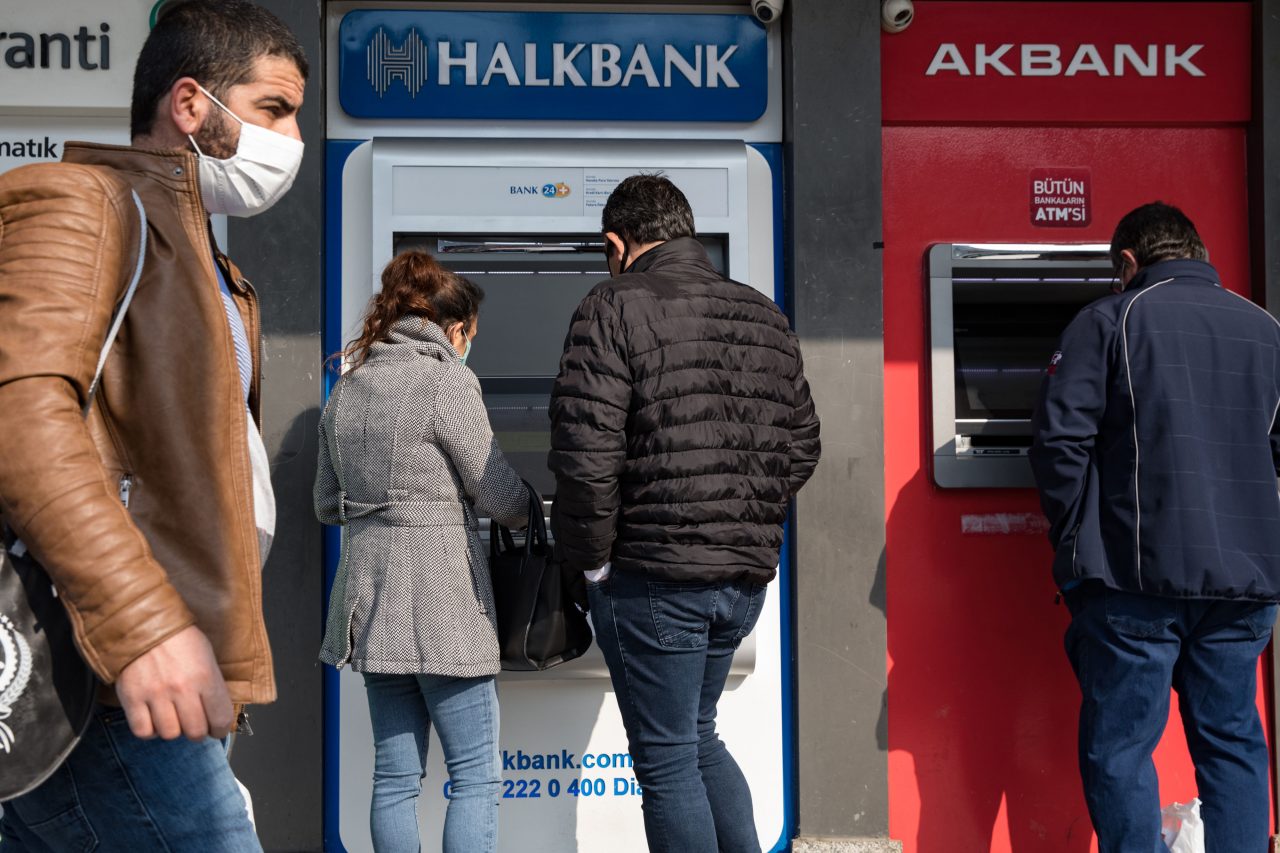[:en]Turkey unveiled its most expansive program of credit incentives in four years to help the economy recover from the coronavirus pandemic.
The nation’s three largest state-owned banks will begin offering products from mortgages and credit for home appliances to holiday packages at below-inflation interest rates, they said in a joint statement on Monday. Turkish stocks rallied after the news with Turkey’s benchmark Borsa Istanbul up 1.3% at 4:10 p.m. The 12-member banking index was trading 1.9% higher.
The crisis in Turkey has thrust banks into the spotlight, with lenders playing a key role in stabilizing the nation’s markets and helping the government finance its budget deficit. Authorities have also leaned on banks to extend loans to businesses and households to avoid cash injections that could worsen the fiscal outlook.
The latest announcement underscores policy makers’ determination to keep credit flowing through Turkey’s $750 billion economy even with lending already growing at a record pace. It also supplements the banking regulator’s latest requirements intended to force private banks to lend more aggressively, according to Onur Ilgen, an Istanbul-based treasury manager at MUFG Bank Turkey AS.
Positive Growth
“We expect the latest package announced by state lenders to support growth in tourism, automotive and construction from the third quarter,” Ilgen said. In the absence of a second wave of coronavirus infections in Europe and Turkey “there is a chance that full-year economic growth turns positive,” he said.
Turkey began easing containment measures last week as infection rates stabilized at their lowest level since the outbreak began more than two months ago. Although the economy is likely to suffer a steep contraction this quarter, it grew 4.5% in the first three months of the year thanks to a surge in government spending and household consumption.
Gross domestic product is expected to shrink 3.6% in 2020, according to a Bloomberg survey last month.
Central banks around the world have in recent months unveiled emergency packages after the pandemic forced authorities to restrict international travel and shut down large parts of their economies. Saudi Arabia on Monday rolled out $13.3 billion in stimulus to protect lenders, while South Africa will cap losses for banks participating in its $11 billion loan-guarantee program.
Credit Channel
Boosting the economy through credit is a policy long favored by President Recep Tayyip Erdogan’s government. Following an attempted coup in 2016, it introduced the Credit Guarantee Fund, through which companies access borrowing with the government acting as a guarantor.
The approach eventually backfired as new credit caused the economy to overheat and contributed to the lira’s crash in August 2018.
But a relatively low level of public debt is giving authorities some room to contain the economic disruptions from the pandemic. As of 2019, the Turkish government’s debt stock stood at 33.1% of gross domestic product. BNP Paribas SA estimates that on average, the rate of government debt to GDP in emerging markets will jump by about 8 percentage points to 50% in 2020.
The government still faces fiscal constraints. Turkey ran last year its largest deficit as a percentage of the economy in about a decade. The deficit is getting even bigger as measures to contain the coronavirus outbreak paralyzed economic activity while spending jumped and tax deferrals chipped away at government revenue. To help plug the gap, it raised 60 billion liras ($8.8 billion) in the month, twice as much as it had targeted.
TC Ziraat Bankasi AS, Turkiye Vakiflar Bankasi and Turkiye Halk Bankasi AS said in a joint statement that they would start offering 15-year mortgages with monthly interest rates as low as 0.64%, or under an annual 8%. Inflation is running at around 11%.
Similar rates and grace periods of as much as a year are on offer for loans to purchase cars and home appliances made in Turkey, they said.
(Source: Bloomberg)
